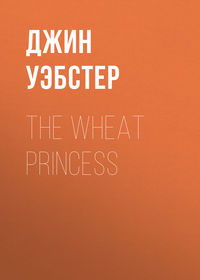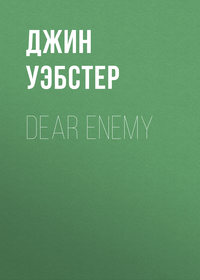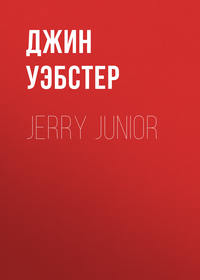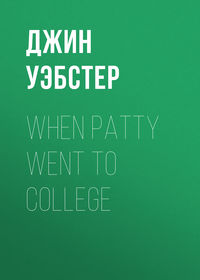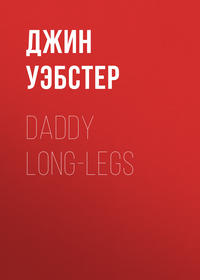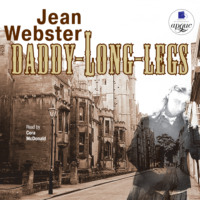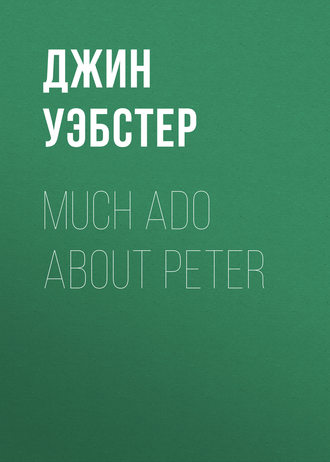 полная версия
полная версияMuch Ado About Peter
"What are they wantin' now?" he growled. "I'll be glad when that bloomin' young lord takes himself home to Ireland where he b'longs. Between picnics an' ridin' parties an' clambakes an' theatricals, I ain't had a chance to sit down since he come."
Annie shoved a chair toward him.
"Then now's your chance, for he's gone. A telegram came calling him away, an' Mr. Harry's just back from motoring him to the station."
"Praise be to the saints!" said Peter, and he turned toward the library door.
He found Miss Ethel, the two young ladies who were visiting her, and Mr. Harry Jasper gathered in a pensive group before the gauze screen that stretched across the front of the stage.
"Here he is!" cried Miss Ethel, with an assumption of energy. "Put on this hat and wig, Peter, and stand behind the screen. I want to see what you look like."
Peter apathetically complied. He had received so many extraordinary commands during the past few days that nothing stirred his curiosity.
"Bully!" said Mr. Harry. "Never'd know him in the world."
"We'll lower the lights," said Miss Ethel. "Fortunately the gauze is thick."
"Peter," Mr. Harry faced him with an air of tragic portent, "a grave calamity has befallen the state. The rightful heir has been spirited away, and it's imperative that we find a substitute. I've often remarked, Peter, upon the striking resemblance between you and Lord Kiscadden. In that lies our only hope. It's a Prisoner of Zenda situation. Often occurs in novels. Do you think it might be carried out in real life?"
"Can't say, sir," Peter blinked dazedly.
"Be sensible, Harry!" Miss Ethel silenced him. "Peter, Lord Kiscadden has been suddenly called away, and it spoils our tableaux for this evening. Fortunately, he didn't have a speaking part. You've watched him rehearse—do you think you could take his place?"
"Don't believe I could, ma'am." Peter's face did not betray enthusiasm.
"You'll have to do it!" said Miss Ethel. "It's too late now to find anyone else."
"You're George Washington," Mr. Harry cut in. "Father of his country. Only man on earth who never told a lie—no one will recognize you in that part, Peter."
"Here are the clothes." Miss Ethel bundled them into his arms. "You saw Lord Kiscadden this afternoon, so you know how they go. Be sure you get your wig on straight, and powder your face thick! It's half-past seven; you will have to dress immediately."
"I ain't had no supper," Peter stolidly observed.
"Annie will give you something to eat in the kitchen. We won't tell anybody except the few who are with you in the tableaux. The operetta cast have never seen Lord Kiscadden, and won't know the difference. The minute the tableaux are over you can disappear, and we will explain that you have been suddenly called away."
A slow grin spread over Peter's face.
"Are ye wantin' me to talk like him?" he inquired. His lordship's idiom had been the subject of much covert amusement among the servants; Peter could mimic it to perfection.
"I don't quite ask that," Miss Ethel laughed, "but at least keep still. Don't talk at all except to us. You can pretend you are shy."
"What did she want, Pete?" Annie inquired, with eager curiosity as he reappeared.
Peter exhibited his clothes.
"Don't speak to me so familiar! I'm Lord Kiscadden o' County Cark. Me family is straight descinded from the kings of Ireland, and I'm masqueradin' as George Washington who never told a lie."
An hour later, Peter, in knee breeches and lace ruffles, with hat comfortably cocked toward his left ear, was sitting at ease on a corner of the kitchen table, dangling two buckled shoes into space, while a cigarette emerged at an acute angle from the corner of his mouth. His appearance suggested a very rakish caricature of the immortal first President. The maids were gathered in a giggling group about the young man, when Miss Ethel and Mr. Harry, also in costume, appeared in the kitchen door. The effect on George Washington was electrical; he removed his cigarette, slid to the floor, straightened his spinal column, and awaited orders.
Mr. Harry carried a make-up box under his arm. He covered the groom's face with a layer of powder, redirected the curve of his eyebrows, added a touch of rouge, and stepped back to view the effect.
"Perfect!" cried Miss Ethel. "No one on earth would recognize him."
"Peter," Mr. Harry gravely schooled him, "these are your lines for the evening; say them after me: 'By Jove! Ripping! Oh, I say! Fancy, now!'"
Peter unsmilingly repeated his lesson.
"And no matter what anybody says to you, you are not to go beyond that. Understand?"
"Yes, sir. I'll do me best, sir." There was an anxious gleam in Peter's eye; he was suddenly being assailed by stage fright.
"Your first appearance is in the fourth tableau, where you say good-bye to your family before taking command of the army," Miss Ethel explained. "The moment it's over slip out to change your costume, and stay out until after the Declaration of Independence has been signed. Don't stand around the wings where people can talk to you. Now go and wait in the butler's pantry until you are called."
Washington took an affecting leave of his family amid an interested rustling of programmes on the part of the audience; no one was unaware of the exalted identity of the hero. The applause was enthusiastic, and the curtain was twice raised. As it fell for the last time a group of historical personages from the operetta cast hovered about him with congratulatory whispers. One or two were in the secret, but the rest were not. Mr. Harry, as stage manager, waved them off.
"Clear the boards for the next scene," he whispered hoarsely. "Here, Kiscadden, you'll have to hurry and dress. You cross the Delaware in ten minutes." With a hand on George Washington's shoulder he marched him off. "That was splendid, Peter," Mr. Harry whispered, as he shunted him into the butler's pantry. "Not a soul suspected. You stay here until you are wanted."
The Delaware was crossed without mishap, also the night watch kept at Valley Forge. Washington and Lafayette crouched over their camp fire amidst driving snow, while the audience shivered in sympathy. But unluckily, these tableaux were followed by no change of costume, and several others intervened before Peter's next appearance. As he was anxiously trying to obliterate himself in the shadow of Plymouth Rock, he heard some one behind him whisper:
"Let's cut out and have a smoke. It's deucedly hot in here."
He turned to find Miles Standish of the operetta cast, with an insistent hand on his elbow. Miles Standish, in private life, was a young man whose horse Peter had held many a time, and whose tips were always generous.
There seemed to be no polite means of escape, and Peter, with a suppressed grin, followed his companion to the veranda. It was lighted by a subdued glow from coloured lanterns, but there was an occasional patch of dimness. He picked out a comfortable chair and shoved it well into the shadow of a convenient palm. Standish produced cigars—twenty-five-cent Havanas, Peter noted appreciatively—and the two fell into conversation. Fortunately the young man aspired to the reputation of a raconteur, and he willingly bore most of the burden. Peter kept his own speeches as short as possible, manfully overcoming a tendency to end his sentences with "sir." An occasional interpolation of "By Jove!" or "I say!" in imitation of Lord Kiscadden's lazy drawl, was as far as he was required to go.
He came out of the encounter with colours still flying; but a perilous ten minutes followed. As the two strolled back to the stage entrance, they were intercepted by a gay group of Pilgrim maids. Peter had coped successfully with one young man, but he realized that half a dozen young ladies were quite beyond his powers of repartee. One of them threw him a laughing compliment on his acting, and he felt himself growing pink as he murmured with a spasmodic gulp:
"Yes, ma'am. Thank ye, ma'am—I say!"
The orchestra saved the situation by striking into a rollicking quickstep that made talking difficult. The music in the end went to Peter's heels; and grasping a blue and buff coat tail in either hand, he favoured the company with an Irish jig. This served better than conversation; the laughter and applause were uproarious, bringing down upon them the wrath of the stage manager.
"Here you people, taisez-vous! You're making such a racket they can hear you inside. Ah, Kiscadden! You're wanted on the stage; it's time for Cornwallis to surrender." Peter was marched out of danger's way.
The surrender was followed by the operetta in which Miss Ethel was heroine. Her own affairs claimed her, but she paused long enough to whisper in George Washington's ear:
"You may go now, Peter. You've done very nicely. Slip out through the butler's pantry where no one will see you. Change into your own clothes and help them in the kitchen about serving supper—but don't on any account step into the front part of the house again to-night."
"Yes, ma'am," said Peter, meekly.
He found the entrance to the butler's pantry blocked, and he dived into the empty conservatory, intending to pass thence to the veranda, and so get around to the kitchen the outside way. But as he reached the veranda door he ran face to face into Mrs. Booth-Higby. Peter quickly backed into a fern-hung nook to let her pass. The light was dim, but his costume was distinctive; after a moment of hesitating scrutiny she bore down upon him.
"Oh, it's George Washington!—Lord Kiscadden, I should say. I see by the programme that your part is finished. It was so frightfully warm inside that I slipped out to get a breath of air. May I introduce myself? I am Mrs. Booth-Higby, of Red Towers. I trust that you will drop in often while you are in the neighbourhood. I have so wanted to have a chance to talk to you because you come from Ireland—dear old Ireland! I am Irish myself on the side that isn't Colonial, and I have a warm spot in my heart for everything green."
Peter manfully bit back the only observation that occurred to him while the lady rattled on:
"My Irish connection is three generations back—a younger son, you know, who came to make his way in a new land, and, having married into one of the old Colonial families, settled for good. But once Irish, always Irish, I say. My heart warms to the little ragamuffins in the street if they have a bit of the brogue. It's the call of the blood, I suppose. Shall we sit here? Or perhaps you have an engagement—don't let me keep you–"
He summoned what breath was left and confusedly murmured: "Oh, I say! Ripping!"
They settled themselves on a rustic bench, and Peter, possessing himself of her fan, slowly waved it to and fro in the nonchalant manner of Mr. Harry. Mrs. Booth-Higby, fortunately, was no less garrulous than Miles Standish had been, and she rattled on gaily, barely pausing for her companion's English interpolations.
Peter's feelings were divided. He had the amused consciousness that he was being flirted with by the lady who, three days before, had so condescendingly given him ten cents. And he also had a chilly apprehension of the storm that would rise if by any mischance she discovered the hoax. But his fighting blood was up, and he was excited by past success. He abandoned his interjections and, venturing out for himself, recounted an anecdote of a fellow countryman in an excellent imitation of Irish brogue. The effort was received with flattering applause. After all, he reassured himself, this was not his funeral, Miss Ethel and Mr. Harry must bear all blame; with which care-free shifting of responsibility he settled himself to extract what amusement there might be in the situation.
The curtain finally fell on the last act of the play, and a shuffling of feet and moving of chairs betokened that a general exodus would follow. Peter came back with a start to a realization of his predicament. While confidence in his powers of simulation had been rising steadily during the past half-hour, he still doubted his ability to deal with the audience en masse.
But fortunately, the first two to appear in the conservatory were Miss Ethel and Mr. Harry, engaged entirely with their own affairs, all thought of the pseudo Kiscadden put from their minds. As they became aware of the couple in the fernery, they stopped short with a gasp of surprise.
"Why, Pet–" Miss Ethel caught herself, and summoning a cordial tone added quickly: "Lord Kiscadden! A telegram came a long time ago—I thought you had received it? I'm afraid they stopped the boy in the kitchen."
"Oh, I say, by Jove! Fancy now!" George Washington jumped hastily to his feet. "Pleased to know ye, ma'am," he added with a farewell duck of his head; and without waiting for further words, he vaulted the veranda railing and disappeared around the corner of the house. He lingered a moment in the shrubbery to hear her say:
"Lord Kiscadden and I have been having such an interesting evening! What a delicious accent he has! You must bring him to Red Towers, Mr. Jasper. I feel that he really belongs to me more than to you; we have discovered that we are distant connections. It seems that his grandmother, the third Lady Kiscadden, was a McGarrah before she married. My own family name was McGarrah, and–"
Peter put his hand over his mouth to stifle his feelings, and reeled toward the kitchen porch.
An hour later, when supper was finished, Miss Ethel and Mr. Harry Jasper slipped away from the guests and turned toward the kitchen. They paused for a moment in the butler's pantry, arrested by the sound of Peter's voice as he discoursed in his richest brogue to an appreciative group of maids. His theme was the Daughters of the Revolution—he had evidently kept his ears open during his brief introduction to society.
"Me father was a Malone, an' me mother was a Haggerty. The family settled in America in 1620 B. C., all me ancistors on both sides bein' first-cabin passengers on the Mayflower. We're straight discinded from Gov'nor Bradford, an' me fifth great-grandfather was the first man hung in the United States. Malone's a Scotch name—it used to be Douglas, but it got changed in the pronouncin'—an' Haggerty is Frinch. I'm eligible on both sides, an' me mother was a charter member. Yes, 'tis a great society; the object of it is to keep the country dimocratic."
They pushed open the door and entered. Peter, restored to his own clothes, was seated before the kitchen table engaged, between sentences, with a soup plate full of ice-cream. He shuffled hastily to his feet as the two appeared, and with a somewhat guilty air studied their faces. He was trying to remember what he had said last.
"Peter," Miss Ethel's voice was meant to be severe, "what have you been telling Mrs. Booth-Higby?"
Peter shifted his weight anxiously from one foot to the other.
"Nothin', ma'am."
"Nothing—nonsense! She is going about telling everybody that she is Lord Kiscadden's cousin. She never made up any such impossible story as that without help."
Miss Ethel's manner was sternly reproving, but Peter caught a gleam of malicious amusement in her eye. It occurred to him that she was not averse to an exhibition of Mrs. Booth-Higby's folly before Mr. Harry Jasper.
"I wasn't to blame, Miss Ethel. I couldn't get out by the butler's pantry like ye told me because the Hartridge family was blockin' the way, and I knew they'd recognize me if I come within ten feet. So I thinks to meself, I'll go through the conservatory; but just as I reaches the door I runs plumb into Mrs. Booth-Higby.
"'Oh, me dear Lord Kiscadden,' she says, 'you was the b'y I was wantin' to see! I must tell ye,' she says, 'how I've enjoyed yer actin'; 'twas great,' she says, 'ye was the best person in the whole show.' An' wid that she puts a hand on me arm an' never lets go for an hour and a quarter—ye know, Mr. Harry, how graspin' she is."
Peter appealed to him as one man to another.
"She begun with askin' about me estate in dear old Ireland. Bein' only eighteen months old when I left it, I couldn't remember many details, but I used me imagination an' done the best I could. I told her there was two lions sittin' on the gate-posts holdin' me coat-of-arms in their paws; I told her there was two towers to the castle, and a peacock strollin' on the lawn; an' then f'r fear she'd be gettin' suspicious, I thought to change the subject. 'Yes, 'tis a beautiful house,' I says, 'but it ain't so grand as some. The biggest place in the neighbourhood,' I says, 'is Castle McGarrah'—the name just popped into me head, Miss Ethel.
"'McGarrah!' she says, 'that is me own name.'
"'The divvil!' thinks I. 'I've put me foot in it now.' But 't was too late to go back. 'Possibly the same family,' says I, politely. 'The present owner, Sir Timothy McGarrah–'
"'Timothy!' she says, 'that was me father's name, an' me grandfather's before him.'
"'There's always one son in ivery gineration that carries it,' says I.
"'Can it be possible?' she murmurs to herself.
"'Me own grandmother was a daughter to the second Sir Timothy,' I says, 'him as quarrelled with his youngest son an' drove him from home. Some says he went to Australia, an' some that he come to America. 'Twas fifty years ago, an' all trace is lost o' the lad.'
"An' with that she says solemn like, 'The b'y was me grandfather! I see it all—he was a silent man an' he niver talked of his people; but I always felt there was a secret a preyin' on his mind. An' by that token we're cousins,' she says. 'I must insist that ye make Red Towers yer home while ye stay in America. Me husband,' she says, 'will enjoy yer acquaintance.'
"An' while I was tryin' to tell her polite like that 't would be a pleasure, but unfortunately me engagements would require me presence in another place, you an' Mr. Harry come walkin' into the conservatory, and I made me escape."
"What ever possessed you to tell such outrageous lies?" Miss Ethel gasped.
"'Twas the clothes that done it, ma'am; bein' dressed as George Washington, I couldn't think o' nothin' true that was fit to say."
Miss Ethel dropped limply into a chair, and leaning her head on the back, laughed until she cried.
"Peter," she said, wiping the tears from her eyes, "I don't see but what I shall have to discharge you. I should never dare let you drive past Mrs. Booth-Higby's again."
"There's nothin' to fear," said Peter, tranquilly. "She won't recognize me, ma'am. Mrs. Booth-Higby's eyes ain't focussed to see a groom."
VIII
A USURPED PREROGATIVE
Peter scooped a quart of oats into a box, took out the bottle of liniment the veterinary surgeon had left, and started, grumbling, for the lower meadow. Trixy had hurt her foot, and it was Billy's fault. A groom who knew no better than to tie a horse to a barbed-wire fence on a day when the flies were bad, ought, in Peter's estimation, to be discharged.
He had some trouble in catching Trixy and applying the liniment, but he finally accomplished the matter, and dropped down to rest in the shade of the straggling hedge that divided the grounds of Willowbrook from Jasper Place. He lighted his pipe and fell to a lazy contemplation of the pasture—his thoughts neither of Trixy nor the cows nor anything else pertaining to his duties, but now as always playing with a glorified vision of Annie, the prettiest little parlour-maid in the whole wide world. He was completely lost to his surroundings, when the sound of pistol shots on the other side of the hedge recalled him to the present with a jerk.
"What are them young devils up to now?" he muttered, as he raised himself to look through the branches.
A group of boys was visible down on the Jasper beach, firing, somewhat wildly, toward a target they had set up on the bank. Peter squinted his eyes and peered closely; one of the boys was Bobby Carter, and Peter more than suspected that the revolver was his father's. The boy had been strictly forbidden to play with firearms, and Peter's first impulse was to interfere; but on second thoughts he hesitated. Bobby was very recently thirteen, and was feeling the importance of no longer being a little boy. He would not relish being told to come home and mind his father.
While Peter stood hesitating, a sudden frightened squawk rang out, and he saw one of Mr. Jasper's guinea fowls fly a few feet into the air and plump heavily to the ground. At the same instant Patrick appeared at the top of the meadow, bearing down upon the scene of the crime, shouting menacingly as he advanced. The boys broke and ran. They came crashing through the hedge a few feet from Peter and made for cover in a clump of willows. Peter recognized them all—Bobby and Bert Holliday and the two Hartridge boys, the latter the horror of all well-regulated parents. He saw them part, the two Hartridge boys heading for the road, while Bobby and Bert Holliday turned toward the house, keeping warily under the bank, Bobby buttoning the revolver inside his jacket as he ran. Peter crouched under the branches and laid low; he had no desire to be called into the case as witness.
Patrick panted up to the hedge and surveyed the empty stretch of meadow with a disappointed grunt. He caught a glimpse of the Hartridge boys as they climbed the fence into the high-road, but they were too far off for recognition. He mopped his brow and lumbered back to examine the body of the guinea fowl. Poor Patrick was neither so slender nor so young as when he entered Mr. Jasper's service twenty years before; as he daily watched Peter's troubles across the hedge, he thanked the saints that the Jasper family contained no boys.
Peter waited till Patrick was well out of sight, when he rose and turned back toward the stables. He met Bobby and Bert Holliday in the lane, armed with a net, a basket, and a generous hunk of raw meat.
"Hello, Pete!" Bobby hailed him cheerily. "We're going crabbing, Bert and me. If you hear Nora asking after some soup meat that strayed out of the refrigerator, don't let on you met it."
"Trust me!" said Peter with an answering grin; but he turned and looked after the boys a trifle soberly.
Bobby's escapade with the revolver was on a different plane from such mild misdemeanours as abstracting fishing bait from the kitchen. Peter felt keenly that Mr. Carter ought to know, but he shrank from the idea of telling. For one thing, he hated tale-bearing; for another, he had a presentiment as to the direction Bobby's punishment would take.
As an indirect result of his thirteenth birthday, the boy was to have a new horse—not another pony, but a grown-up horse—provided always that he was good. Mr. Carter, being occupied with business out of town, had not been able to give the matter his immediate attention; and poor Bobby had been dwelling on the cold heights of virtue for nearly a month. He had undergone, a week or so before, a mild attack of three-day measles which he had borne with a sweet gentleness quite foreign to his nature. Peter had openly scouted the doctor's diagnosis of the case.
"Rats!" he remarked to Annie, after viewing the boy's speckled surface. "That ain't measles. It's his natural badness working out. I knew it weren't healthy for him to be so good. If Mr. Carter don't make up his mind about that horse pretty soon the boy'll go into a decline."
But at last the question was on the point of being settled. Mr. Carter, having visited every horse dealer in the neighbourhood, had, in his carefully methodical manner, almost made up his mind. The choice was a wiry little mustang, thin-limbed and built for running; he could give even Blue Gypsy some useful lessons in speed, and she had a racing pedigree four generations long. Peter had fallen in love with the mustang; he wanted it almost as much as Bobby. And he realized that these next few days were a critical period; if the boy were discovered in any black offence, the horse would be postponed until his fourteenth birthday. His father had an unerring sense of duty in the matter of punishments.
It was Saturday and Mr. Carter would be out on the noon train. Peter drove to the station to meet him, still frowning over the question of Bobby and the revolver. He finally decided to warn the boy; there would be time enough to speak if the offence were repeated. Mr. Carter proved to be in an unusually genial frame of mind. He chatted all the way out on matters pertaining to the stables; and as they drew up at the porte-cochère he paused to ask:


